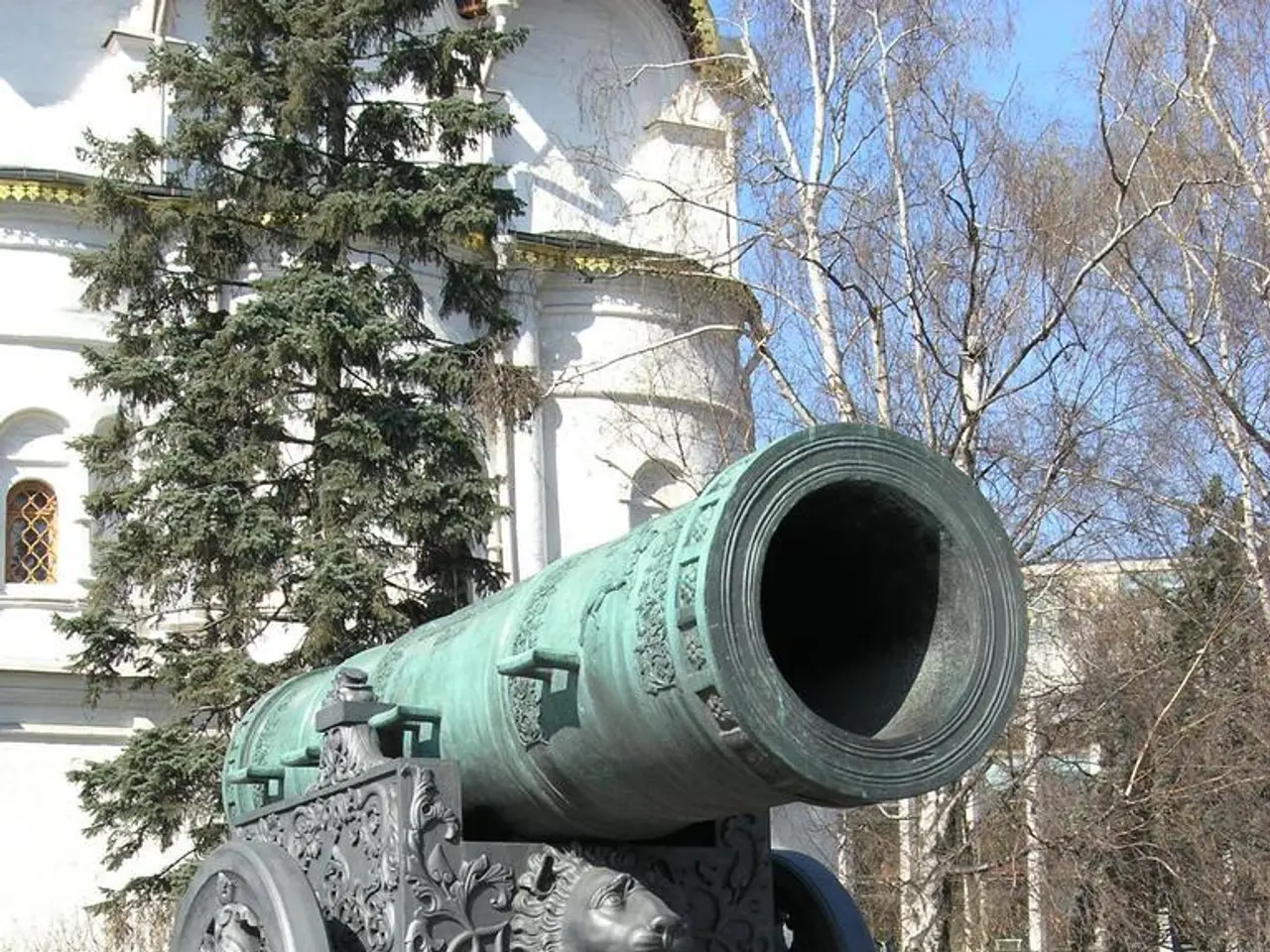U.S. military intelligence suspects Russia has stationed an enigmatic weapon in Earth's orbit.
In the realm of international space exploration, a growing rivalry between the United States and Russia is causing concern among global observers. This competition revolves around anti-satellite (ASAT) weapons in low Earth orbit (LEO), a development that could potentially lead to space warfare.
The latest escalation came when Russia launched a satellite, Cosmos 2576, on May 16, 2024. This satellite, widely believed to be an anti-satellite weapon or a satellite capable of disabling other satellites, has raised alarm in the US and internationally[3]. Chief Master Sergeant Ron Lerch of the US Air Force Space Command mentioned the potential use of "kinetic killer vehicles" by "rival countries," a clear reference to this incident.
In response, the US has been increasing its secrecy and capability in its own space programs. For instance, the U.S. Space Force conducted a secretive launch (the Vulcan rocket’s mission USSF-106 in August 2025) with many details withheld, likely to safeguard national security assets amid fears that adversaries—including Russia and China—are advancing their anti-satellite technologies[1]. The secretive nature of US launches indicates worries about protecting sensitive reconnaissance or communication satellites against hostile ASAT attacks.
Deputy Foreign Minister Sergei Ryabkov has dodged accusations from the United States regarding the Russian space program, but he has mentioned devices aimed at strengthening Russian defense capability[2]. Meanwhile, the US Space Force denounced a satellite project in November 2023, citing possible intentional collisions between satellites[5].
This rivalry contributes to the broader deterioration of international arms control and nuclear stability, with emerging technologies like ASATs exacerbating strategic tensions[4]. Both nations appear to be expanding their capabilities for disabling or destroying satellites as part of their military doctrines, although neither side officially admits offensive intent.
Notably, in early 2024, U.S. defense officials claimed that Russia was working on a nuclear space weapon[6]. However, the use of such devices for strengthening defense capability is not a novelty in itself. Cosmos 2576, currently in the same orbit as a US government satellite, is a stark reminder of this escalating arms race in space weapons focused on LEO.
Despite the lack of official detailed accusations or diplomatic disclosures, the secrecy and media labeling indicate a growing arms race in space weapons focused on LEO. This development, if unchecked, could have serious implications for global security and peace.
- The growing rivalry between the United States and Russia in the field of space-and-astronomy, particularly concerning anti-satellite (ASAT) weapons in low Earth orbit (LEO), raises concerns about potential space warfare.
- Amidst this competition, Russia's launch of Cosmos 2576, believed to be an anti-satellite weapon, has caused alarm in the US and internationally.
- In response, the US Space Force has been increasing its secrecy and capability in its space programs, with launches like the Vulcan rocket’s mission USSF-106 in August 2025, details of which are withheld to safeguard national security assets.
- The expansion of both the US and Russia's capabilities for disabling or destroying satellites as part of their military doctrines, although neither side officially admits offensive intent, contributes to strategic tensions and could have serious implications for global security and peace.




